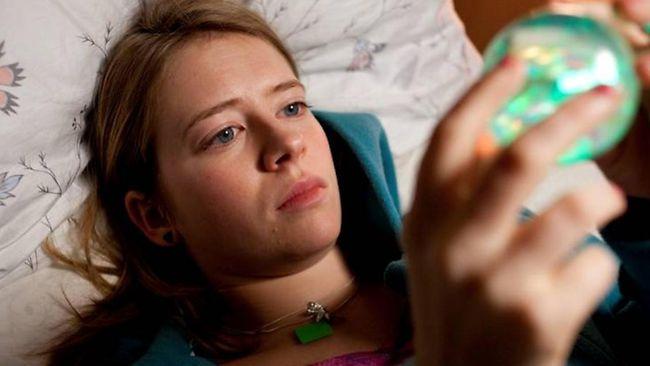Climbing the family tree
There are some grim pasts to be faced in this enlightening exploration of genealogy

There are some grim pasts to be faced in this enlightening exploration of genealogy
"I THINK being a comedian is an absolutely total product of my background," Magda Szubanski says. "I think I could not have gone about the world in any other way. I come from nations and families that never felt very safe."
She's talking of her appearance as the subject of the first episode of the returning SBS series Who Do You think You Are?, the show that takes prominent Australians on an often complex, and sometimes unsettling, genealogical journey.
"I found the whole thing just harrowing," Szubanski says of the three-week observational documentary shoot. "What you see on camera is just the tip of the iceberg; I spent three weeks just bawling my eyes out."
She goes on to suggest that somehow the curious vulnerability of her comic work, that quality of perpetual isolation and the sense that the whole world has conspired against her dignity, stems from the DNA that runs deep in her family history.
This new series from Perth-based factual producer Artemis also features former Test cricketer Rod Marsh, singer Tina Arena and actors Shane Bourne, Paul Mercurio and Georgie Parker. They journey through their ancestries -- across Australia and the globe -- in a fascinating chronicle of the social and cultural evolution of our national identity.
Each episode is essentially a tightly researched feature documentary, presented usually with a humorous or deeply emotional touch. (Sometimes, as in the case of Szubanski, both.) The series offers a nice lateral entry into historical events by putting them in the context of highly emotional stories.
"It's such a great way to personalise history," says Szubanski, though she's obviously still a little dazed from her experience. "Throughout my life I have had intimations of some of this stuff, strange dreams. I know this sounds kooky, but I swear many of those experiences are passed on in the bloodstream somehow; I think my family's poor old DNA is a bit frayed."
As always, the series is quite unpredictable and often confronting across the generational divide, for the participants and those watching. For many of us, especially baby boomers, genealogy is the new travel, and tracking our hidden family history has become addictive.
This show, based on the original BBC series, is seriously habit-forming with its irresistibly simple format. Internationally, Who Do You Think You Are? has been increasingly popular since 2004 when it first aired in Britain. There are versions in Canada, Ireland, Sweden, South Africa and a gushy American adaptation, produced by former Friends star Lisa Kudrow.
The show is dependent on the families of the guest being interesting, of course. Michael Parkinson has said he was rejected from BBC1's version because his family history was so boring.
The families involved in this third SBS series feature Polish resistance fighters, shell-shocked World War I veterans, drunken criminals, marathon piano players, early Australian film actresses and mafia heavies.
Szubanski wanted to understand how terrible world events, spoken of by her family when she was growing up in Melbourne, had helped shape her and her comedy. Born to Polish father Zbigniew Szubanski and Scottish mother Margaret McCarthy, she emigrated with them when she was five.
But who was her mother's contradictory Irish Catholic grandfather, Luke John McCarthy, who died before she was born? Was he really a member of the anti-English IRA? And, paradoxically, did he really suffer devastating shell shock fighting for the British at the battle of the Somme and in the foul mud pits of Ypres?
And what of her dad, a lovely man so full of humour and love? She already knew he had fought for the Polish Resistance in World War II during the Nazi occupation.
But was he really an assassin in a secret counter-intelligence unit known as 993W, under the control of the Polish government in exile? And did he really survive the destruction of Warsaw by crawling out through the sewers beneath a city jammed with dead bodies?
Szubanski travels with the Artemis film crew to Ireland, Scotland and Poland, feeling, she says, increasingly traumatised.
Quietly she traces the harrowing, demeaning poverty in which her grandfather lived as a young man and the courageous altruism of her defiant, quarrelsome father, the small guy who loved to party.
With the help of genealogists, military historians and trauma specialists, she is able to closely follow the way they both so courageously rebuilt their lives.
"To be able to come out of all that and still retain an absolute joy for life and to be able to laugh, which is absolutely vital, I think is a very powerful expression of life," she says.
Of course, this being reality TV we take for granted the amount of work done behind the scenes. If you're searching for the biographical flourishes of your lineage in online genealogy, you won't find them as easily as the famous comedian does in this hour-long program. Sure the birth, marriage and death records, as well as other plot points in your perhaps tumultuous life story, maintained by religious or state institutions, can be tracked down reasonably easily. But those voyeuristic details of marriages and affairs, shady land deals and court cases, and photographs that bring the narrative alive, can be irritatingly elusive.
However, the series convinces us that these sometimes esoteric slices of people's lives have some faint connection with our own. Szubanski's did for me. My grandfather Pop Stanger, his family originally from the windswept Orkneys in Scotland, also almost died in those same foul potholes of Ypres, where he was gassed and where Szubanski's grandfather was emotionally broken.
As Szubanski suggests, a journey such as the one she undertakes in this series becomes an acknowledgment of grief, a moment to pay tribute to those who underwent such devastating trauma and the effect it has had on families through so many decades. It's one that so many of us can vicariously share in gratitude.
"I feel as the next generation we are somehow traumatised; it's had a profound effect on me and my siblings. You don't come out of it unscathed," Szubanski says.
The series gets many of us searching our stories. I know many people, including my wife, who after seeing their first episode went to their computers and started checking out genealogical sites. She was disappointed to learn she was descended from a long line of squat Cornish miners and not the fine Indian princes of her imagination.
The local series matches the BBC version, which also shows on SBS, in its subtleties, ingenuity of historical research and insight into the pasts of the chosen public figures.
Each episode combines the intimacy, and sometimes voyeurism, of observational documentary and the puzzles of the well-told detective story. It is a brilliant concept.
I'll certainly never be able to watch Szubanski again without thinking of her immigrant family's extraordinary ordeals and how they came through them all with smiles on their faces.
YOU may have caught the first part of The Silence last night, the new four-part BBC thriller written by Fiona Seres, the writer largely responsible for the brilliant local series Love My Way and Tangle. But if you missed the establishing episode you'll catch up fast, and it's worth it.
Seres tells the story of Amelia (Genevieve Barr), a profoundly deaf 18-year-old who's learning to hear after being fitted with a cochlear implant, and struggling to find a place in the hearing world. (Her family affectionately call her "Squeaks".)
As she successfully endures her intensive therapy, she's also trying to find her independence from her understandably over-protective parents, Anne (Gina McKee) and Chris (Hugh Bonneville).
To help with the travel involved in her treatment, she goes to stay with her party-loving, rather appalling cousins, homicide detective uncle Jim (Douglas Henshall) and free-spirited florist aunt Maggie (Dervla Kirwan). But while out walking the family collie, Brodie, she witnesses the murder of a policewoman, eventually identifying a cop on the drug squad as one of the two killers.
She's quickly involved in the investigation, which is assigned to her uncle. Not only is she suddenly and unexpectedly propelled into the loud and unsettling world of murder, but her own life is in danger, and possibly those of her uncle and his family. It's easy
to understand her seeming ambivalence about completely entering the world of noise and confusion.
Seres plots with an imaginative touch and keeps it turning over with genuine surprises to the very end of the first episode. It's difficult to know where she, and young Amelia, will take us next week, although you get the feeling her cousin's drug-taking and partying lifestyle is quickly going to disrupt their father's investigation.
It's all nicely complex, and the first episode was the start of a classy bit of TV, an original blending police procedural thriller, a confronting Tangle-like family drama and a grittily touching coming-of-age story.
Genevieve Barr is remarkable as Amelia. Barr is a severely deaf actress who has lived with hearing implants nearly all her life and was working as a teacher when she got the part.
Sympathetic direction from award-winning Dearbhla Walsh (she picked up an Emmy for the BBC mini-series Little Dorrit in 2008) vividly evokes the world of deafness, and the nightmare some face adapting to implants.
The Silence cleverly illustrates the continual confusion, interference and emotional alienation as sounds change, clash or simply disappear. Walsh achieves this by a subtle combination of extreme, intimate close-ups, a subjective, hovering camera presence and a highly evocative sound design.
As is the fashion with TV directors at the moment, she changes angles and the shape of shots constantly, the new speedy digital camera technology enabling her to cover scenes more flexibly than used to be the case. She also frequently surprises us with the often instantaneous juxtaposition of moods and reactions.
At times it's as if we are in the scenes with Seres's characters, or inside Amelia's head as she tries to cope with the cacophony of distorted sounds that people with recent implants apparently experience.
The ensemble work is strong but Barr is fabulous, understated and intuitive, able to convey so immediately from her experience the reassurance she derives from silence as her world so noisily alters around her.
"I hope that people will see the uniqueness of Amelia, my character, and that while she struggles to adapt to a hearing world, her personality is in no way subdued," Barr wrote on the BBC's blog about her performance. "If anything, her disability enhances her charisma and makes her stand out even more as a pretty forthcoming and stubborn individual."
It's a performance you should see.
The Silence, Friday, 8.30pm, ABC1
Who Do You think You Are?, Sunday, 7.30pm, SBS One


